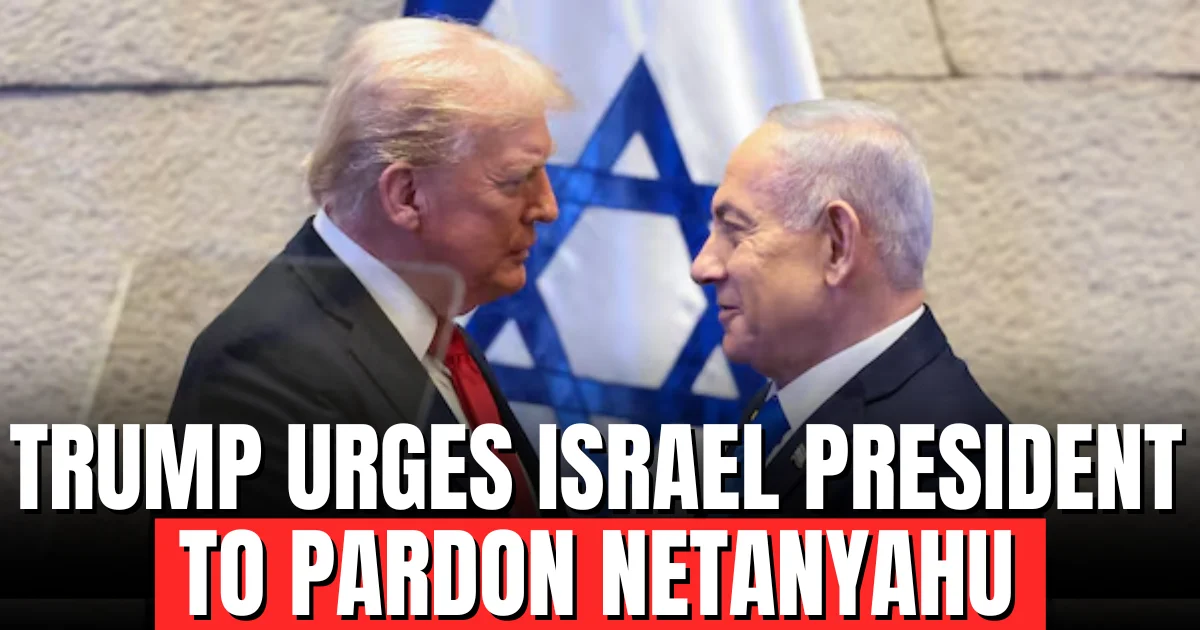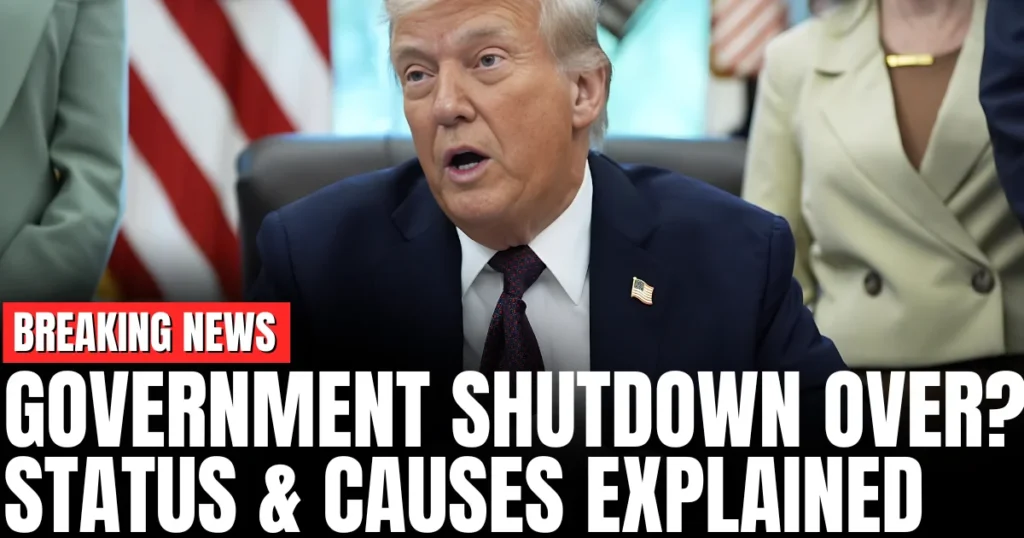Trump calls for Netanyahu pardon, but Israeli president lacks authority. Analysis of legal systems, diplomatic implications, Netanyahu charges. Details!
Table of Contents
Trump Calls on Israeli President to Grant Netanyahu Clemency Amid Ongoing Legal Proceedings
Former US President’s Intervention in Israeli Judicial Matters Raises Questions About Diplomatic Protocol and Political Influence
Former President Donald Trump has publicly called on Israeli President Isaac Herzog to pardon Prime Minister Benjamin Netanyahu, who faces ongoing corruption charges in Israeli courts. Trump’s unprecedented intervention in another nation’s judicial proceedings has sparked debate about diplomatic norms, the Israeli legal system, and the political relationship between the two leaders.
The appeal, made via social media posts and public statements, comes as Netanyahu continues defending himself against multiple corruption indictments while simultaneously serving as Israel’s prime minister. Trump characterized the charges as “political persecution” similar to what he claims to have experienced in the United States, framing his call as support for an ally facing “witch hunts.”
However, Trump’s request reflects fundamental misunderstanding of the Israeli political system, where the largely ceremonial president lacks the constitutional authority to grant pardons in the manner of the American presidency. Israeli legal experts quickly noted that Netanyahu’s legal fate rests with the courts, not the president, making Trump’s appeal legally meaningless even as it carries political symbolism.
The episode highlights the complex intersection of international relations, domestic politics, and judicial independence, while raising questions about former American officials publicly pressuring foreign governments regarding internal legal matters. Israeli officials have not formally responded to Trump’s statements, maintaining traditional separation between political leadership and judicial proceedings.
Understanding the Israeli Legal System
Why Trump’s Request Is Misplaced
Trump’s call for presidential pardon demonstrates confusion about Israeli governance:
Israeli President’s Role:
- Largely ceremonial position with limited executive powers
- Symbolic head of state, not head of government
- No pardon authority comparable to US president
- Cannot interfere in judicial proceedings
Prime Minister’s Role:
- Head of government with executive authority
- Netanyahu currently serves despite indictments
- Under Israeli law, can remain in office unless convicted
- Resignation not required during trial
Judicial Independence:
- Israeli Supreme Court has strong independence
- Political figures cannot dismiss charges
- Presidential intervention in trials unconstitutional
- Separation of powers strictly maintained
Israeli Legal Scholar Professor Mordechai Kremnitzer:
“The Israeli president has no authority to pardon someone in the middle of trial proceedings. This reflects misunderstanding of our constitutional system. Pardons, when granted at all, come after conviction and only in exceptional circumstances.”
How Israeli Pardons Actually Work
Pardon Authority:
- President may grant pardons after conviction and sentencing
- Requires recommendation from Justice Minister
- Advisory committee reviews applications
- Used sparingly in Israeli legal tradition
Netanyahu’s Situation:
- Still on trial, not convicted
- No pardon application possible until conviction
- Process could take years
- Appeals would follow any conviction
Netanyahu’s Legal Situation
The Charges
Netanyahu faces three separate corruption cases:
Case 1000 – Breach of Trust:
- Accepting gifts from billionaire benefactors
- Cigars, champagne, jewelry valued at hundreds of thousands
- Allegedly in exchange for regulatory favors
- Netanyahu denies wrongdoing
Case 2000 – Fraud and Breach of Trust:
- Alleged deal with newspaper publisher
- Favorable coverage in exchange for limiting competitor
- Recorded conversations as evidence
- Netanyahu claims discussions never implemented
Case 4000 – Bribery, Fraud, Breach of Trust:
- Most serious charges
- Regulatory favors for telecommunications company
- In exchange for positive news coverage
- Prosecution’s strongest case
Trial Status:
- Began in May 2020
- Ongoing testimony and evidence presentation
- Expected to continue for months or years
- Netanyahu denies all charges, claims political persecution
Political Implications
Netanyahu’s Position:
- Continues serving as Prime Minister despite charges
- Coalition government maintains majority
- Legal troubles dominate Israeli politics
- Public divided on his guilt and whether he should resign
Israeli Law:
- No requirement to resign during trial
- Only conviction would force resignation
- Supreme Court ruled he can form government despite charges
- Democratic norms vs. legal technicalities debated
Trump-Netanyahu Relationship
Political Alliance
Historical Partnership:
During Trump Presidency (2017-2021):
- Moved US embassy to Jerusalem
- Recognized Israeli sovereignty over Golan Heights
- Brokered Abraham Accords (UAE-Israel normalization)
- Strong personal relationship between leaders
- Mutual political support
Post-Presidency:
- Trump continued defending Netanyahu
- Netanyahu one of last world leaders to congratulate Biden
- Shared perception of being targeted by “deep state”
- Political alignment on conservative issues
Parallel Legal Situations
Trump draws explicit parallels between their circumstances:
Trump’s Framing:
- Both face “political persecution”
- Weaponization of justice system
- Charges motivated by partisan opposition
- Legitimate leaders under attack
Critics’ Perspective:
- Both face legitimate legal accountability
- Rule of law applying to powerful figures
- Attempting to delegitimize judicial processes
- Using political power to avoid consequences
Diplomatic and Political Reactions
Israeli Response
Official Silence:
Israeli government hasn’t formally responded, but sources indicate:
President Herzog’s Office:
- No public comment on Trump’s statements
- Maintaining judicial independence stance
- Avoiding entanglement in political controversy
- Constitutional role doesn’t permit intervention
Netanyahu Allies:
- Some welcome Trump’s support
- Frame as international recognition of “political persecution”
- Use to bolster domestic narrative
- Solidarity messaging
Opposition Figures:
- Criticize Trump’s intervention as inappropriate
- Emphasize judicial independence
- Note constitutional limitations
- Reject characterization of charges as political
US Political Reactions
Republican Support:
Many Republicans echo Trump’s characterization of political persecution against allies.
Democratic Criticism:
“Former presidents should not pressure foreign governments regarding their internal legal proceedings. This undermines judicial independence and democratic norms.” – Representative quote
Foreign Policy Experts:
Concerns about diplomatic precedent and appropriateness of former officials publicly influencing foreign judicial matters.
Broader Context
Global Trend of Populist Leaders Facing Legal Accountability
Netanyahu and Trump are among several populist leaders facing legal challenges:
Similar Situations:
- Brazil’s Bolsonaro – facing investigations
- France’s Sarkozy – convicted of corruption
- Italy’s Berlusconi – multiple convictions (deceased 2023)
- South Korea’s Park – imprisoned for corruption
Common Patterns:
- Claims of political persecution
- Attempts to delegitimize judicial systems
- Using political power to avoid accountability
- Mobilizing supporters against legal institutions
Questions About Judicial Independence
The Tension:
- Democratic accountability for powerful figures
- Protecting courts from political pressure
- Distinguishing legitimate prosecutions from political targeting
- Maintaining public confidence in justice systems
What This Means
For US-Israel Relations
Limited Practical Impact:
Trump’s call has no legal effect but carries symbolic weight:
- Shows continued personal alliance
- Signals potential future support if Trump returns to office
- Complicates current administration’s approach
- Domestic politics in both countries intertwined
For Diplomatic Norms
Precedent Concerns:
- Former officials publicly pressuring foreign governments
- Intervention in judicial proceedings
- Blurring lines between domestic and international politics
- Impact on future presidential conduct
Frequently Asked Questions (FAQs)
Can Israel’s president actually pardon Netanyahu?
No, the Israeli president cannot pardon Netanyahu under current circumstances. Israeli presidents have largely ceremonial roles with very limited executive powers, unlike US presidents. Pardons in Israel require completion of trial, conviction, sentencing, Justice Minister recommendation, and advisory committee review. Since Netanyahu is still on trial without conviction, no pardon mechanism exists. Even after potential conviction, presidential clemency would be extremely rare and controversial. The Israeli president cannot intervene in ongoing judicial proceedings.
What charges does Netanyahu face?
Netanyahu faces corruption charges in three separate cases: Case 1000 (breach of trust for accepting gifts from billionaires), Case 2000 (fraud and breach of trust for alleged media coverage deal), and Case 4000 (bribery, fraud, and breach of trust for regulatory favors to telecommunications company in exchange for positive coverage). The most serious is Case 4000 with bribery charges. Trial began in May 2020 and continues with Netanyahu denying all charges and claiming political persecution.
Why did Trump make this request?
Trump appears motivated by personal alliance with Netanyahu, shared perception of being victims of “political persecution,” ideological alignment on conservative issues, and parallel legal situations. Trump frames both their circumstances as weaponization of justice systems against legitimate leaders. The request also signals continued support for Netanyahu and potential policy direction if Trump returns to presidency. Critics view it as inappropriate intervention in foreign judicial matters and attempt to delegitimize accountability mechanisms.
Is it appropriate for a former US president to make such requests?
Foreign policy experts and diplomacy scholars generally view Trump’s intervention as inappropriate and unprecedented. Former presidents typically avoid publicly pressuring foreign governments regarding internal legal matters, particularly judicial proceedings. Such intervention can undermine judicial independence, democratic norms, and diplomatic relationships. While private diplomatic communications happen, public campaigns to influence foreign legal processes break traditional protocols. The request raises questions about former officials’ conduct and boundaries of political speech.
What happens next in Netanyahu’s legal case?
Netanyahu’s corruption trial continues with ongoing testimony, evidence presentation, and legal arguments expected to last many more months or potentially years. If convicted, Netanyahu would be required to resign as prime minister and could face prison sentence. He would have appeal rights through Israeli court system. The trial’s outcome significantly impacts Israeli politics, coalition stability, and potential elections. International attention, including Trump’s statements, adds political dimension but doesn’t affect legal proceedings.
Conclusion: Symbolism Over Substance in Unusual Appeal
Donald Trump’s call for Israeli President Herzog to pardon Benjamin Netanyahu represents symbolic political support with zero legal impact, given the fundamental misunderstanding of Israeli constitutional structure and judicial independence. The ceremonial Israeli presidency lacks pardon authority comparable to the American system, and Netanyahu’s ongoing trial hasn’t reached the conviction stage where clemency mechanisms could even theoretically apply.
The episode reveals the continued personal and political alliance between Trump and Netanyahu, both of whom frame their respective legal challenges as political persecution rather than legitimate accountability. Their shared narrative of victimization by “weaponized” justice systems resonates with supporters while drawing criticism from those who view it as undermining rule of law and democratic institutions.
From a diplomatic perspective, Trump’s public intervention in foreign judicial proceedings breaks traditional norms about former officials’ conduct and raises questions about appropriate boundaries of political speech and international influence. While Trump no longer holds office, his potential return to presidency gives his statements weight beyond mere personal opinion.
For Israel, the request creates awkward diplomatic dynamics without practical legal impact, highlighting ongoing tensions between Netanyahu’s political power and legal accountability. The prime minister continues governing despite corruption charges, a situation Israeli law permits but democratic norms question.
Ultimately, Trump’s pardon appeal achieves exactly what it was likely designed to do: generate headlines, signal political solidarity, reinforce shared narratives about persecution, and maintain personal alliances that could prove valuable if either or both return to uncontested power. What it cannot do is actually affect Netanyahu’s legal fate, which rests with Israeli courts, not presidents—American or Israeli.

